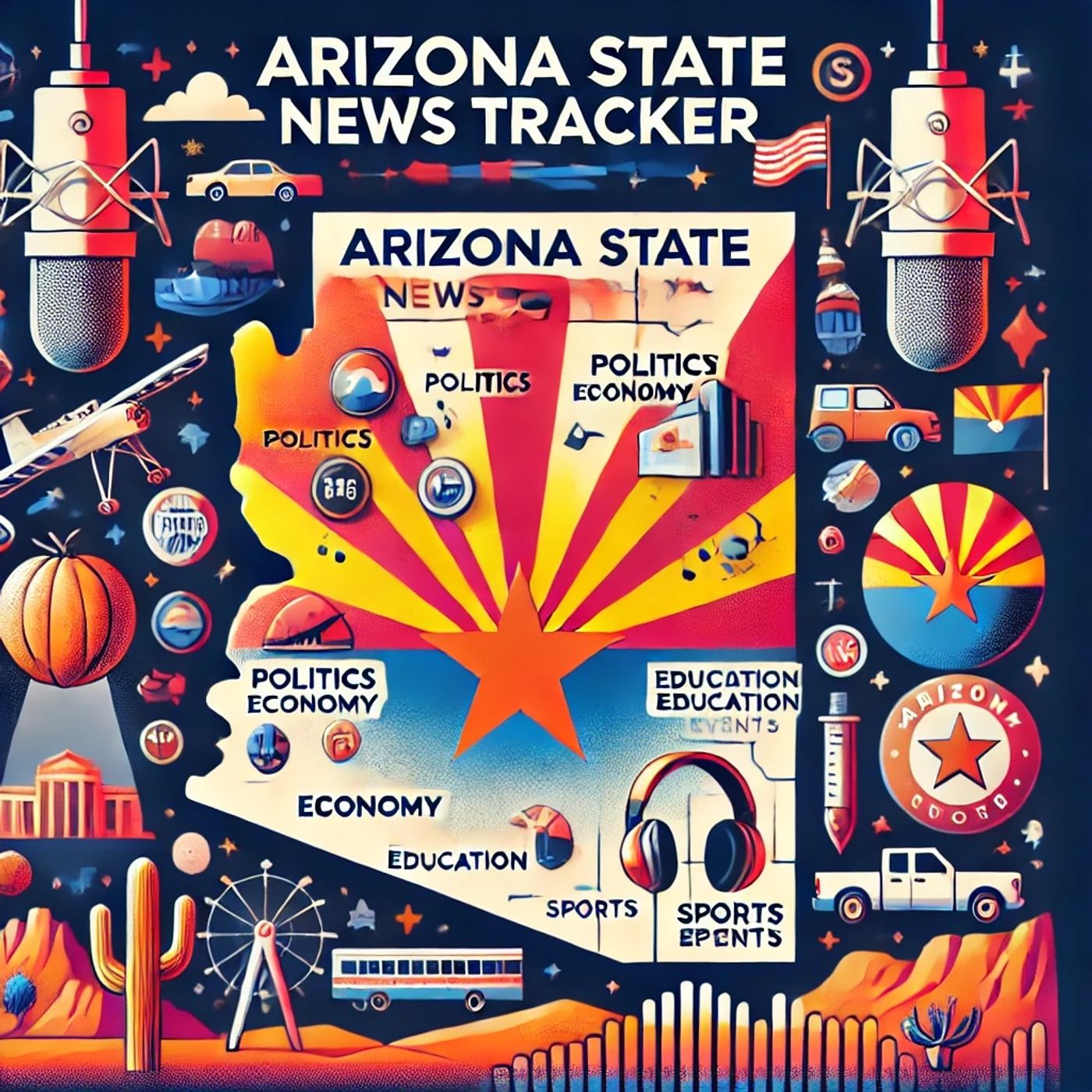Arizona State News and Info Daily
Arizona Sees Record $50 Billion Investment and Job Growth in Landmark 2024 Economic Year

Arizona has seen a mix of significant developments across various sectors in recent months. The state's minimum wage is set to increase by 50 cents to $14.35 per hour on January 1, 2024, reflecting a 3.7% increase in inflation from August 2022 to August 2023[1].
In government and politics, the Arizona legislature adjourned its 2024 session on June 15, 2024, with several notable policy changes. The legislature sent HCR 2060, an extreme and anti-immigrant ballot referral, to the ballot, while Governor Hobbs signed HB 2310 and HB 1359, including a law prohibiting deceptive synthetic media messages of candidates[2].
On the economic front, Arizona set records for economic development in Fiscal Year 2024, attracting over $50 billion in capital investment and creating 24,251 new jobs with an average wage of $75,701[3]. This significant growth underscores the state's economic momentum.
In environmental news, September 2024 saw below-normal precipitation totals across Arizona, with temperatures ranging from 97.2 to 47.5 degrees Fahrenheit in different regions. The National Interagency Fire Center warned of an above-normal potential for significant wildland fires in central and northwestern Arizona[4].
Looking Ahead:
- The upcoming election season will see Arizonans voting on critical ballot measures, including HCR 2060.
- The state's economic development efforts are expected to continue, with ongoing projects aimed at enhancing workforce development and supply chain resilience.
- Environmental concerns, particularly the potential for wildland fires, will remain a focus as Arizona enters the dry season.
In government and politics, the Arizona legislature adjourned its 2024 session on June 15, 2024, with several notable policy changes. The legislature sent HCR 2060, an extreme and anti-immigrant ballot referral, to the ballot, while Governor Hobbs signed HB 2310 and HB 1359, including a law prohibiting deceptive synthetic media messages of candidates[2].
On the economic front, Arizona set records for economic development in Fiscal Year 2024, attracting over $50 billion in capital investment and creating 24,251 new jobs with an average wage of $75,701[3]. This significant growth underscores the state's economic momentum.
In environmental news, September 2024 saw below-normal precipitation totals across Arizona, with temperatures ranging from 97.2 to 47.5 degrees Fahrenheit in different regions. The National Interagency Fire Center warned of an above-normal potential for significant wildland fires in central and northwestern Arizona[4].
Looking Ahead:
- The upcoming election season will see Arizonans voting on critical ballot measures, including HCR 2060.
- The state's economic development efforts are expected to continue, with ongoing projects aimed at enhancing workforce development and supply chain resilience.
- Environmental concerns, particularly the potential for wildland fires, will remain a focus as Arizona enters the dry season.
- Broadcast on:
- 20 Dec 2024
Arizona has seen a mix of significant developments across various sectors in recent months. The state's minimum wage is set to increase by 50 cents to $14.35 per hour on January 1, 2024, reflecting a 3.7% increase in inflation from August 2022 to August 2023[1].
In government and politics, the Arizona legislature adjourned its 2024 session on June 15, 2024, with several notable policy changes. The legislature sent HCR 2060, an extreme and anti-immigrant ballot referral, to the ballot, while Governor Hobbs signed HB 2310 and HB 1359, including a law prohibiting deceptive synthetic media messages of candidates[2].
On the economic front, Arizona set records for economic development in Fiscal Year 2024, attracting over $50 billion in capital investment and creating 24,251 new jobs with an average wage of $75,701[3]. This significant growth underscores the state's economic momentum.
In environmental news, September 2024 saw below-normal precipitation totals across Arizona, with temperatures ranging from 97.2 to 47.5 degrees Fahrenheit in different regions. The National Interagency Fire Center warned of an above-normal potential for significant wildland fires in central and northwestern Arizona[4].
Looking Ahead:
- The upcoming election season will see Arizonans voting on critical ballot measures, including HCR 2060.
- The state's economic development efforts are expected to continue, with ongoing projects aimed at enhancing workforce development and supply chain resilience.
- Environmental concerns, particularly the potential for wildland fires, will remain a focus as Arizona enters the dry season.
In government and politics, the Arizona legislature adjourned its 2024 session on June 15, 2024, with several notable policy changes. The legislature sent HCR 2060, an extreme and anti-immigrant ballot referral, to the ballot, while Governor Hobbs signed HB 2310 and HB 1359, including a law prohibiting deceptive synthetic media messages of candidates[2].
On the economic front, Arizona set records for economic development in Fiscal Year 2024, attracting over $50 billion in capital investment and creating 24,251 new jobs with an average wage of $75,701[3]. This significant growth underscores the state's economic momentum.
In environmental news, September 2024 saw below-normal precipitation totals across Arizona, with temperatures ranging from 97.2 to 47.5 degrees Fahrenheit in different regions. The National Interagency Fire Center warned of an above-normal potential for significant wildland fires in central and northwestern Arizona[4].
Looking Ahead:
- The upcoming election season will see Arizonans voting on critical ballot measures, including HCR 2060.
- The state's economic development efforts are expected to continue, with ongoing projects aimed at enhancing workforce development and supply chain resilience.
- Environmental concerns, particularly the potential for wildland fires, will remain a focus as Arizona enters the dry season.